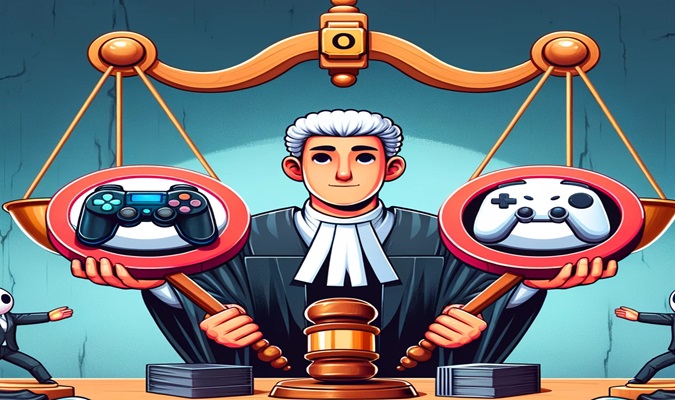The answer is that it really depends. If a mod uses copyrighted material without permission and doesn’t fall under fair use, it technically could be an infringement. However, the actual legal response varies widely depending on the copyright holder’s policies and the specifics of the mod.
Understanding Copyright Law
Copyright is like a shield that protects creative things, such as video games, from being copied without permission.
It’s there to make sure that creators get credit for their hard work.
The public domain is like a club for things that don’t have this shield anymore because their protection time ran out or they were intentionally given away.
If creators don’t want full copyright control, they can use licenses that let others use their work in certain ways.
Some games also use open-source or Creative Commons licenses to share while still keeping some rules.
Video game mods can be a tricky area when it comes to copyright law.
Here’s a quick breakdown.
Original Game’s Copyright
The game itself, like any other creative work, is protected by copyright.
This means that the characters, storyline, music, graphics, and all other elements that the original developers created are their intellectual property.
Mods and Derivative Works
Mods (short for modifications) are alterations or additions that players or fans make to video games.
These can range from simple tweaks to complete overhauls. When a mod uses any copyrighted material from the game, it’s creating what’s called a derivative work.
Platforms like Steam Workshop and Nexus Mods have their own sets of rules and tools for sharing mods.
These platforms work with game developers to ensure mods are shared in a way that respects copyright laws.
Fair Use Doctrine
In some cases, mods could be considered fair use, especially if they’re non-commercial, transformative, or add new expression or meaning to the original work.
However, fair use is a legal defense, not a right, so it’s determined on a case-by-case basis in court.
There have been lawsuits involving mods that set precedents. One high-profile case was the Dota mod for Warcraft III.
The crux of the matter was whether Valve could capitalize on what was claimed to be ‘free work’ done by others.
The court sided with Valve, indicating that contributions from various developers did not devalue their efforts and rights acquired by Valve.
This case highlights the intricate nature of copyright disputes in the gaming industry, especially with games that have a long history and input from various contributors.
These cases can influence how mods are treated legally.
Copyright Holder’s Stance
Many game companies now include specific modding policies that outline what is and isn’t allowed.
Some game developers and publishers are open to mods and even encourage them, seeing them as a form of fan engagement that can extend the life of a game.
Others might strictly enforce their copyrights, which can lead to takedowns of mods or legal action against mod creators.
End User License Agreements (EULAs)
These are agreements that users accept before playing a game. Many EULAs have clauses that restrict the creation of mods or require that any mods be non-commercial.
Commercial vs. Non-Commercial
If a mod is being sold for money, it’s more likely to attract legal action from the copyright holder than a free mod, which is often tolerated or ignored.
Impact on the Gaming Industry
Mods can have significant effects on the gaming industry. They can revive interest in older games, lead to the creation of entirely new games, or even result in modders being hired by game studios.
This cultural impact influences how the industry views mods.
Conclusion
In summary, while mods exist in a gray area of copyright law, the balance between the rights of the original creators and the contributions of the modding community is delicate.
It’s a dynamic space where legalities, community norms, and industry practices all intersect.
Further reading:
